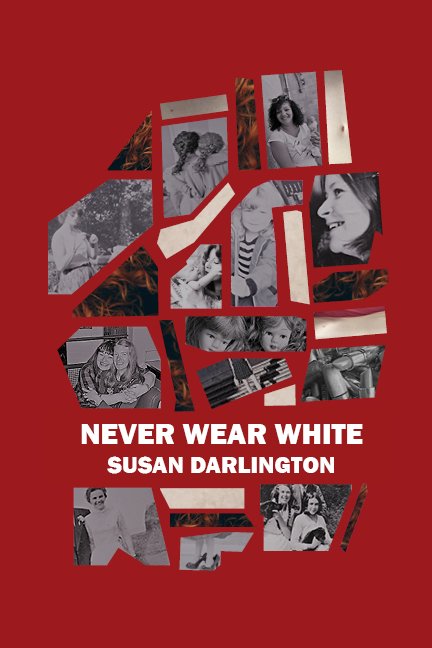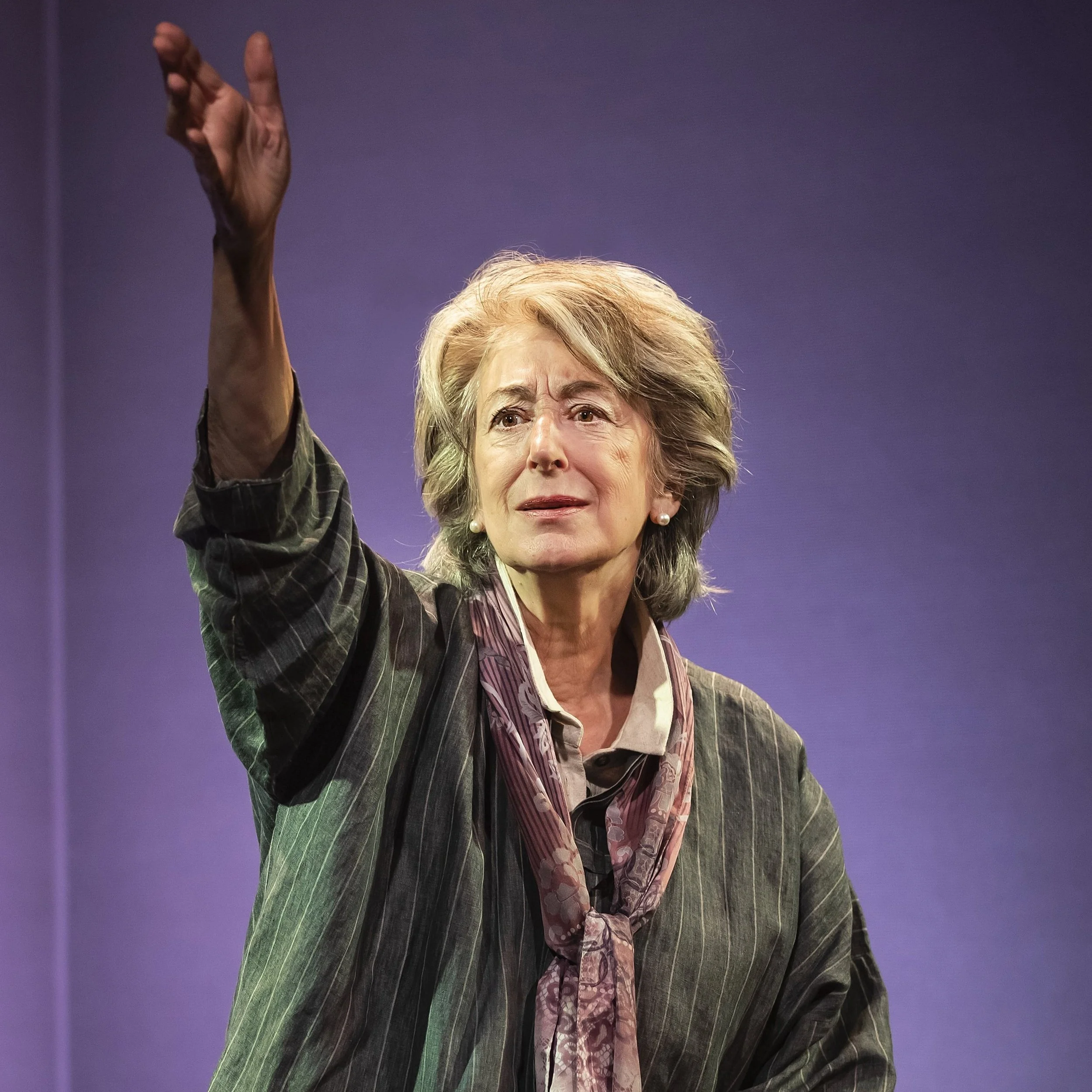Never Wear White: Real-Life Radical Poetry
By Sacha Crowther & Susan Darlington
Leeds-based poet and writer, Susan Darlington, has released a new chapbook of poetry that examines the complex relationship between mothers and daughters. The poems relive adolescent emotions around first blood and body image and remind us how women’s voices have been historically silenced, particularly around menopause and childlessness.
As she builds upon two previous books, we caught up with Susan to talk about her growing library and her innovative way of balancing traditional fairy tales with “taboo” topics.
Firstly - congrats on the launch of your new poetry book!
Can you tell us a bit about the origins of this new collection? What made you decide “this is my next subject matter”?
It felt like the subject matter discovered me, rather than the other way round!
Firstly, I joined an online writing project called (Un)mother that set writing prompts that invited members to reflect on aspects of being childless, through choice or otherwise. On the back of that I was invited to sit on a panel at a World Childless Week webinar. These experiences really brought home the stigma around being childless and the pain that many women carry about it, often in silence.
Running parallel to that, I was diagnosed with early menopause. This made me question who I was, as a woman who’d never had a child, and made me reflect on memories that were connected with becoming a woman, such as starting my period. These led me onto other subjects, such as mother-daughter relationships, all of which I explored through my writing.
Before I knew it I had enough poems on the subject to fill a collection!
You say that ‘the poems relive adolescent emotions’ - was this a cathartic process for you? Or did you face any challenges when entering the mindset of your younger self?
The poems are primarily drawn from real life experience or observation but they’re not strictly autobiographical. It was important to create space for the subject matter to be relatable to other people, which in turn created a certain amount of emotional distance that I found quite liberating.
There are certain subjects - being publicly excluded from swimming at school when menstruating; being ogled by boys in the changing room - that made me angry on reflection. Whereas, at the time, they were just deemed ‘normal’. I think that, as a society, we’ve got much better at calling out this everyday sexism, which is a definite step in the right direction.
The themes I was exploring made me go back and listen to some of the music I Ioved as a teenager, which helped me enter the mindset of my younger self. I’ve got vivid emotional memories attached to many of those bands: having a giant poster of PJ Harvey on my bedroom wall; travelling to London by myself to see Patti Smith; going into town to buy a Throwing Muses album on the first day of release… I wanted to reflect those positive aspects of being a teenager in the poems too: how music and friendship can guide us through life.
What made you feel that now was the time to break the silence on menopause, childlessness, and other historically taboo topics?
As I mentioned above, there were personal circumstances that led me to explore many of the themes. I’ve also had a longstanding interest in fairytales - from Marina Warner’s ‘From the Beast to the Blonde’ to Angela Carter’s ‘The Bloody Chamber’ - that provided a useful framework for some of the subjects.
Therefore, I approached the subject with a certain vested interest. But audience reactions when I read poems like ‘The Art of Childlessness’ (which is about accepting and celebrating being child-free) and ‘It’s Alright’ (which addresses miscarriage) made me realise there was something important about those shared experiences.
There are many women addressing similar subjects from different angles at the minute: Wendy Pratt’s ‘When I Think of my Body as a Horse’; Helen Goss’ ‘Her Birth’; and Rebecca Lucy-Taylor with the music of Self Esteem come to mind (all of which I would highly recommend). So while my book isn’t unique, there is a valuable place for all these voices to take over space that’s been historically silenced.
What do you think it is about the poetic form that allows you to voice ‘historically silenced’ voices?
Poetry was on my school curriculum but I didn’t start to read it in earnest until I came across people like Sylvia Plath and Anne Sexton in Riot Grrrl fanzines. Those DIY publications were giving a voice to women who were being ignored by the mainstream but they also gave me ‘permission’ to write and share my poetry.
I’m not sure the poetic form is unique in giving a voice to those who’ve been historically silenced but it does have an immediacy and ability to offer snapshots of experience. Unlike a novel or film, which tend to have a narrative arc, a poem can capture a single moment in time. And unlike much visual art, which is equally effective at capturing snapshots, poetry is cheap (all you need is a pen and paper!) and can be written on the move.
I think that women, many of whom juggle family or caring responsibilities, are attracted to poetry because it’s comparably quick to read and less labour-intensive to write. That makes it a powerful medium when trying to give voice to those shared but historically silenced experiences.
The title of the collection ‘Never Wear White’ makes me think of periods, virginity, bridal traditions - it may be impossible, but can you explain what the title means to you and/or how you settled upon it as a name tag for this collection?
The title is taken from a song by the Riot Grrrl band Heavens To Betsy called ‘My Red Self’, which tackles the stigma around menstruation. I quote its lyrics in one of the chapbook’s poems, ‘Sisters’, which is about female friendship and empowerment. The song’s meaning, and its alternate connotations of being a virgin bride in white, are themes that resonate throughout the poems and made it a perfect title for the book.
How does this latest collection fit alongside your previous works?
Is there a sense of chronology and evolution? Or divorce perhaps, as you cross the ‘coming of age’ boundary into pastures new?
My previous book, ‘Traumatropic Heart’ (Selcouth Station, 2021), was very much nature-based. Its poems use a lot of metaphor and elements of magic realism to explore themes of trauma and healing. I was very conscious that I didn’t want to write the same book, either in terms of subject matter or style, and so I challenged myself to be much more direct.
Most of the poems in ‘Never Wear White’ use a first person narrator and employ vivid imagery that leaves the reader in no doubt about the meaning. The focus on women remains a constant across the two books, so I feel like they’re connected but distinct in tone.
Can you tell us a bit about your launch plans? Events, festivals… how are you planning to spread your important message?
Unfortunately, I had to postpone my in-person book launch due to contracting Covid. But I’m looking to reschedule it in Leeds soon! In the meantime I’m doing a co-headline online launch on 23 November with Annie Cowell (Birth Mote(s), Alien Buddha Press) and Sue Watling (Heaving with the Dreams of Strangers, Dreich).
Book free tickets through Eventbrite.
Do you have a strapline for the launch campaign? What’s the message that you want to shout from the rooftops?
The book has a focus on the female experience but I’d very much like men to read it too. They need to be part of the dialogue if stigmas and taboos are to be broken down. And they need to understand how their behaviour can impact the lives of the women around them.
And finally, do you have a favourite poem from your latest book? (It’s probably not something I’m supposed to ask - but if you do, can you tell us why this piece stands out above the others?)
I don’t know if it’s my favourite but I always enjoy reading ‘Carrie’ at events. It deals with the body shame that girls absorb from society and the fear of menstrual blood leaking through clothing, and it often provokes a strong response from the audience.
I’ve had women tell me that the topic resonated with them - that it brought back memories of their own time at school - and it’s such a privilege to have that kind of connection. It’s also an honour that my poem can give women the space to reflect on their own experiences and start to have conversations about something that most of us have gone through but usually don’t share. It broaches stigmas that are only just starting to be broken down.
Buy Never Wear White on Amazon for £8.45 (ISBN 979-8809229012).
For more from the author, follow @S_sanDarlington on Twitter.






